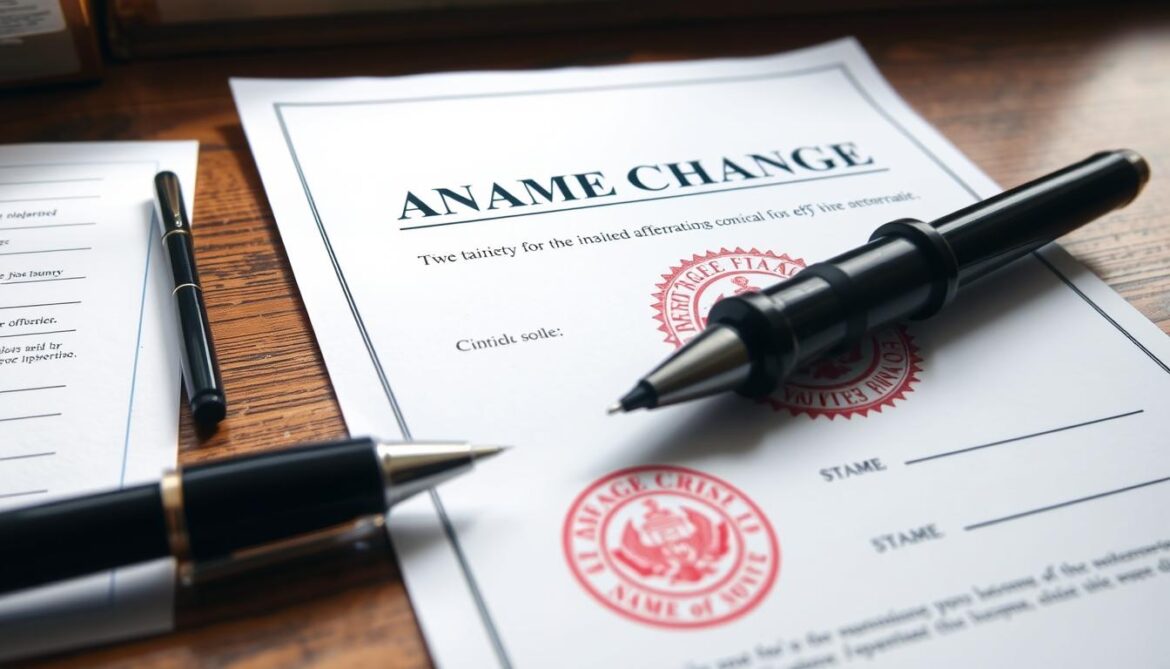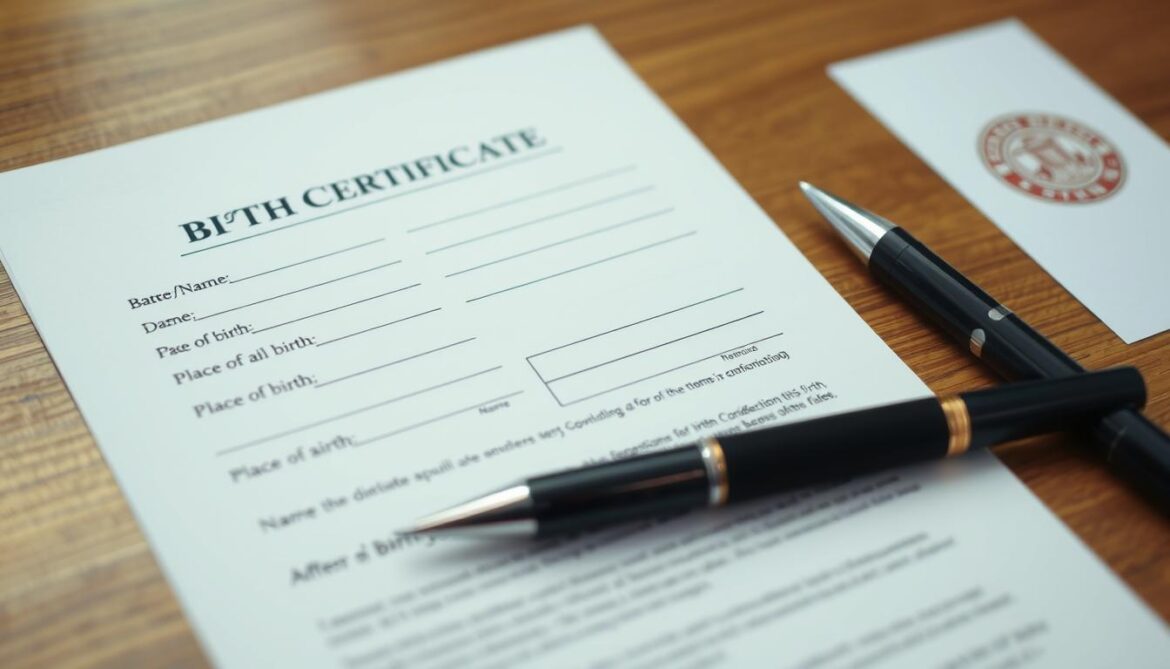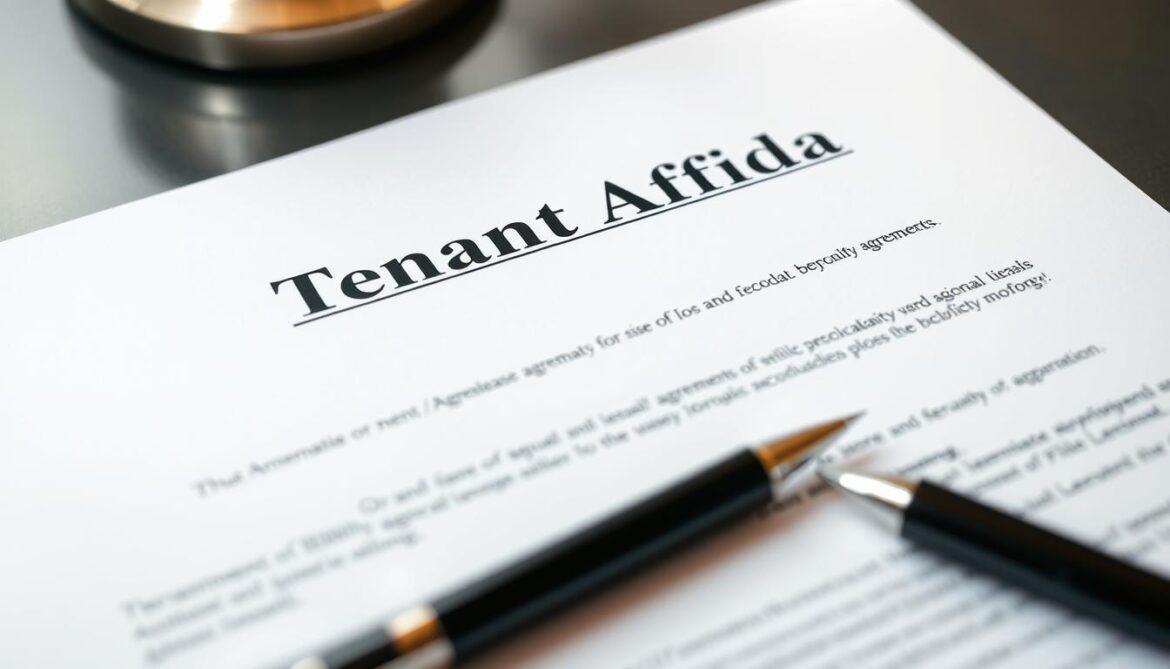Popular Affidavits
कायदेशीर दस्तऐवजांची फारशी माहिती नसताना, पोटगीसाठी शपथपत्र (maintenance affidavit) तयार करणे खूप अवघड वाटू शकते. हे सर्वसमावेशक मार्गदर्शक ही प्रक्रिया सोप्या, व्यवस्थापनीय चरणांमध्ये विभागते, जे कोणीही फॉलो करू शकते. तुम्ही जोडीदार किंवा मुलाच्या पोटगीसाठी अर्ज करत असाल, किंवा पोटगीच्या दाव्याला प्रतिसाद देत असाल, हा लेख तुम्हाला कायदेशीररित्या योग्य पोटगी शपथपत्र तयार करण्यासाठी आवश्यक असलेल्या प्रत्येक गोष्टीची माहिती देईल.
पोटगीसाठी शपथपत्र (Maintenance Affidavit) म्हणजे काय?
पोटगीसाठी शपथपत्र हे एक शपथपूर्वक दिलेले कायदेशीर दस्तऐवज आहे जे तुमच्या उत्पन्न, मालमत्ता, देयता (liabilities) आणि खर्चांबद्दल तपशीलवार आर्थिक माहिती देते. कौटुंबिक कायद्याच्या कार्यवाहीमध्ये, विशेषतः जोडीदार किंवा मुलांच्या पोटगीच्या प्रकरणांमध्ये, हे दस्तऐवज अत्यंत महत्त्वाची भूमिका बजावते. योग्य पोटगीची रक्कम ठरवण्यासाठी न्यायालये या शपथपत्रांवर अवलंबून असतात.
पोटगीसाठी शपथपत्र म्हणजे एक प्रकारचे आर्थिक प्रकटीकरण (financial disclosure) आहे जे न्यायालयाला तुमची संपूर्ण आर्थिक परिस्थिती समजून घेण्यास मदत करते. सर्वोच्च न्यायालयाने या शपथपत्रांसाठी विशिष्ट मार्गदर्शक तत्त्वे आणि स्वरूप (formats) स्थापित केले आहेत, जे पोटगीच्या कार्यवाहीमध्ये पारदर्शकता आणि जबाबदारी सुनिश्चित करतात.
शपथपत्रात आवश्यक असलेली माहिती
एक पूर्ण शपथपत्रात तुमच्या आर्थिक स्थितीबद्दल सर्वसमावेशक तपशील असणे आवश्यक आहे. माहिती अपूर्ण असल्यास केसमध्ये विलंब किंवा ती फेटाळली जाण्याचा धोका असतो. तुम्हाला काय समाविष्ट करणे आवश्यक आहे ते येथे आहे:
- वैयक्तिक माहिती
- पूर्ण कायदेशीर नाव आणि पत्ता
- संपर्क माहिती (फोन आणि ईमेल)
- व्यवसाय आणि नियोक्त्याचा तपशील
- विवाह आणि विभक्त झाल्याची तारीख (लागू असल्यास)
- अवलंबित मुलांची नावे आणि वय
- उत्पन्न क्षमतेवर परिणाम करणाऱ्या कोणत्याही वैद्यकीय स्थितीचा तपशील
- आर्थिक माहिती
- सर्व स्त्रोतांकडून मिळणारे मासिक उत्पन्न (पगार, व्यवसाय, गुंतवणूक)
- सर्व मालमत्तेची संपूर्ण यादी (मालमत्ता, वाहने, गुंतवणूक)
- सर्व देयता आणि कर्जे (कर्जे, गहाण, क्रेडिट कार्ड)
- मासिक खर्च (घरभाडे, उपयुक्तता, किराणा, इत्यादी)
- बँक खात्यांचे तपशील आणि स्टेटमेंट
- मागील तीन वर्षांचे आयकर रिटर्न
महत्त्वाचे: सर्वोच्च न्यायालयाने शेतीतून उत्पन्न नसलेल्या (non-agrarian) व्यक्तींना मालमत्ता आणि देयता जाहीर करण्यासाठी विशिष्ट स्वरूपाचे पालन करण्यास सांगितले आहे. हे स्वरूप सामान्य शपथपत्रांपेक्षा अधिक तपशीलवार आहे आणि सर्वसमावेशक आर्थिक प्रकटीकरण आवश्यक आहे.
शपथपत्र तयार करण्यासाठी चरण-दर-चरण सूचना
- स्वरूपण मार्गदर्शक तत्त्वे (Formatting Guidelines) न्यायालयाने शपथपत्र स्वीकारण्यासाठी योग्य स्वरूपण आवश्यक आहे. या मार्गदर्शक तत्त्वांचे अनुसरण करा:
- शीर्षक विभाग:
- शीर्षक: “मालमत्ता आणि देयतांचे शपथपत्र”
- न्यायालयाचे नाव आणि स्थान
- प्रकरण क्रमांक (आधीच नेमला असल्यास)
- पक्षांची नावे (दावेदार आणि प्रतिवादी)
- प्रक्रियेचे शीर्षक (उदा. “कलम १२५ सीआरपीसी अंतर्गत पोटगीच्या प्रकरणात”)
- मुख्य भागाचे स्वरूपण:
- प्रत्येक विधानासाठी क्रमांकित परिच्छेद वापरा.
- मानक A4 आकाराचा कागद वापरा, १-इंच मार्जिनसह.
- वाचनीयतेसाठी १२-पॉइंट टायम्स न्यू रोमन किंवा एरिअल फॉन्ट आणि दुहेरी-अंतर (double-spaced) मजकूर वापरा.
- पानाच्या तळाशी मध्यभागी पृष्ठ क्रमांक टाका.
- शीर्षक विभाग:
- माहितीची मांडणी (Content Organization) तुमच्या शपथपत्राची खालीलप्रमाणे तार्किक मांडणी करा:
- प्रस्तावना: तुमची ओळख, प्रकरणाशी तुमचे संबंध आणि शपथपत्राचा उद्देश सांगा.
- वैयक्तिक तपशील: तुमचे नाव, वय, पत्ता, व्यवसाय आणि कुटुंबाची माहिती समाविष्ट करा.
- उत्पन्नाचे स्त्रोत: सर्व उत्पन्नाच्या स्त्रोतांचा तपशील द्या.
- मालमत्ता: तुमच्या मालकीच्या सर्व जंगम आणि स्थावर मालमत्तांची यादी करा.
- देयता: सर्व कर्जे आणि आर्थिक जबाबदाऱ्यांची गणना करा.
- मासिक खर्च: नियमित मासिक खर्चाचा तपशील द्या.
- राहणीमान: तुमचे सध्याचे राहणीमान आणि विभक्त झाल्यापासून त्यात झालेले बदल वर्णन करा.
- सत्यापन: तुम्हाला माहिती असलेली सामग्री सत्य आहे असे सांगणारे एक सत्यापन कलम (verification clause) समाविष्ट करा.
- नोटरीकरण प्रक्रिया (Notarization Process) एकदा तुमचे शपथपत्र तयार झाल्यावर, कायदेशीररित्या वैध होण्यासाठी ते योग्यरित्या नोटरीकृत करणे आवश्यक आहे:
- शपथपत्रावर केवळ नोटरी पब्लिकच्या उपस्थितीत स्वाक्षरी करा.
- सरकारने जारी केलेले वैध ओळखपत्र सोबत घेऊन जा.
- नोटरी तुमची ओळख सत्यापित करेल आणि तुमच्या स्वाक्षरीची साक्ष देईल.
- नोटरी त्यांच्या अधिकृत शिक्का (seal) आणि स्वाक्षरी करेल.
- न्यायालयात सादर करण्यासाठी आणि वैयक्तिक नोंदींसाठी नोटरीकृत शपथपत्राच्या अनेक प्रती तयार करा.
शपथपत्रात टाळण्यासारख्या सामान्य चुका
छोट्या चुकांमुळेही तुमच्या पोटगीच्या प्रकरणावर लक्षणीय परिणाम होऊ शकतो. या सामान्य चुका टाळा:
- अपूर्ण आर्थिक प्रकटीकरण: सर्व मालमत्ता, उत्पन्नाचे स्त्रोत किंवा आर्थिक खाती जाहीर करण्यात अयशस्वी होणे.
- असंगत माहिती: वेगवेगळ्या कागदपत्रांमध्ये भिन्न आर्थिक तपशील देणे.
- असमर्थित दावे: सहायक कागदपत्रे जोडल्याशिवाय विधाने करणे.
- अतिशयोक्तीपूर्ण खर्च: मासिक खर्च अवास्तविकपणे वाढवणे.
- अयोग्य नोटरीकरण: स्वाक्षऱ्या नसणे किंवा दस्तऐवजाची अयोग्य साक्ष.
- जुनी माहिती: सध्याची परिस्थिती दर्शवणारी नसलेली जुनी आर्थिक माहिती वापरणे.
- विसंगत सादरीकरण: गोंधळात पाडणारे, फॉलो करायला कठीण असे दस्तऐवज सादर करणे.
- गहाळ जोडपत्रे: संदर्भ दिलेली जोडपत्रे किंवा प्रदर्शन न जोडणे.
इशारा: शपथपत्रातील खोट्या विधानांना न्यायालये अत्यंत गंभीरपणे घेतात. खोटी माहिती दिल्यास खोट्या साक्षीचे आरोप, न्यायालयाचा अवमान आणि तुमच्या प्रकरणाच्या निकालावर नकारात्मक परिणाम होऊ शकतो. प्रकटीकरणात नेहमी सत्य आणि सखोल रहा.
पोटगीच्या शपथपत्रांबद्दल वारंवार विचारले जाणारे प्रश्न
- शपथपत्र तयार करण्यासाठी वकिलाची गरज आहे का? कायदेशीररित्या आवश्यक नसले तरी, विशेषतः गुंतागुंतीच्या प्रकरणांमध्ये वकिलाची मदत घेणे अत्यंत शिफारसीय आहे. वकील तुमचे शपथपत्र सर्व कायदेशीर आवश्यकतांचे पालन करते आणि तुमची आर्थिक परिस्थिती प्रभावीपणे सादर करते याची खात्री करू शकतो.
- सादर केल्यानंतर मी माझ्या शपथपत्रात बदल करू शकतो का? होय, जर तुमच्या आर्थिक परिस्थितीत महत्त्वपूर्ण बदल झाले असतील, तर तुम्ही पूरक (supplementary) किंवा सुधारित (amended) शपथपत्र दाखल करू शकता. तथापि, त्यासाठी तुम्हाला न्यायालयाची परवानगी घ्यावी लागेल आणि बदलाचे वैध कारण द्यावे लागेल.
- माझ्याकडे सर्व आवश्यक आर्थिक कागदपत्रे नसतील तर काय? तुम्ही काही विशिष्ट आर्थिक कागदपत्रे देऊ शकत नसल्यास, शपथपत्रात त्याचे कारण स्पष्ट करा. शक्य असल्यास, पर्यायी पुरावे किंवा अंदाज द्या. न्यायालय तुम्हाला गहाळ कागदपत्रे सादर करण्यासाठी अतिरिक्त वेळ देऊ शकते.
- पोटगी सामान्यतः कोणत्या तारखेपासून दिली जाते? सर्वोच्च न्यायालयाच्या मार्गदर्शक तत्त्वांनुसार, पोटगी सामान्यतः अर्ज दाखल केल्याच्या तारखेपासून दिली जाते, आदेशाच्या तारखेपासून नाही. हे प्रक्रियेदरम्यान अवलंबून असलेल्या जोडीदाराची दुर्दशा टाळण्यासाठी आहे.
निष्कर्ष
पोटगीसाठी शपथपत्र तयार करण्यासाठी तपशीलाकडे लक्ष देणे आणि सखोल आर्थिक प्रकटीकरण आवश्यक आहे. या मार्गदर्शकातील चरण-दर-चरण सूचनांचे पालन करून, तुम्ही एक सर्वसमावेशक आणि कायदेशीररित्या अनुरूप दस्तऐवज तयार करू शकता जे तुमच्या आर्थिक परिस्थितीचे अचूक प्रतिनिधित्व करेल. न्यायालयाला आर्थिक माहिती सादर करताना पारदर्शकता आणि प्रामाणिकपणा सर्वात महत्त्वाचा आहे हे लक्षात ठेवा.
तुम्ही पोटगी मागत असाल किंवा पोटगीच्या दाव्याला प्रतिसाद देत असाल, एक सुव्यवस्थित शपथपत्र तुमची बाजू मजबूत करते आणि न्यायालयाला योग्य निर्णय घेण्यास मदत करते. सर्व आवश्यक कागदपत्रे गोळा करण्यासाठी, माहितीची तार्किक मांडणी करण्यासाठी आणि सादर करण्यापूर्वी अचूकतेसाठी सर्वकाही तपासण्यासाठी वेळ काढा.






